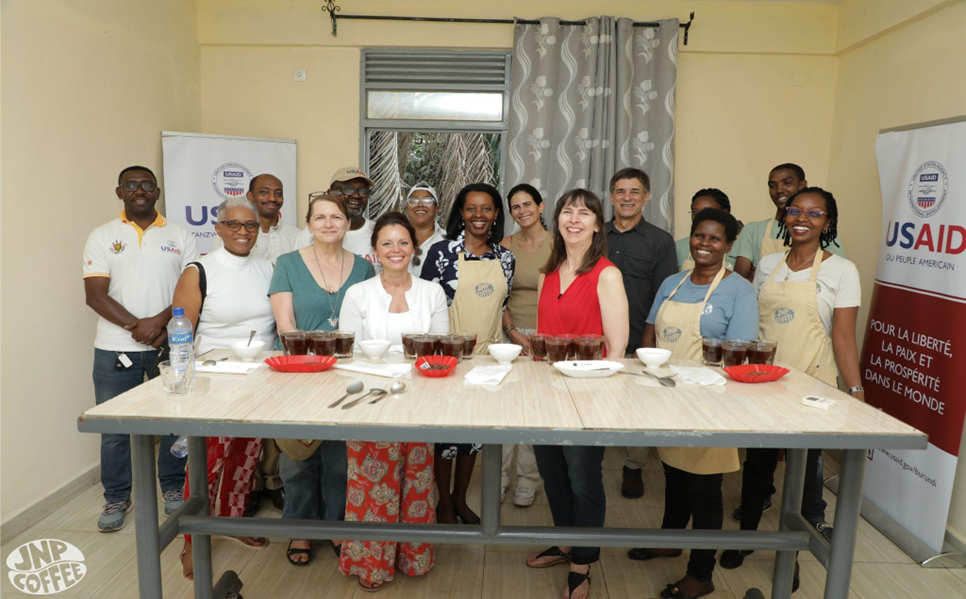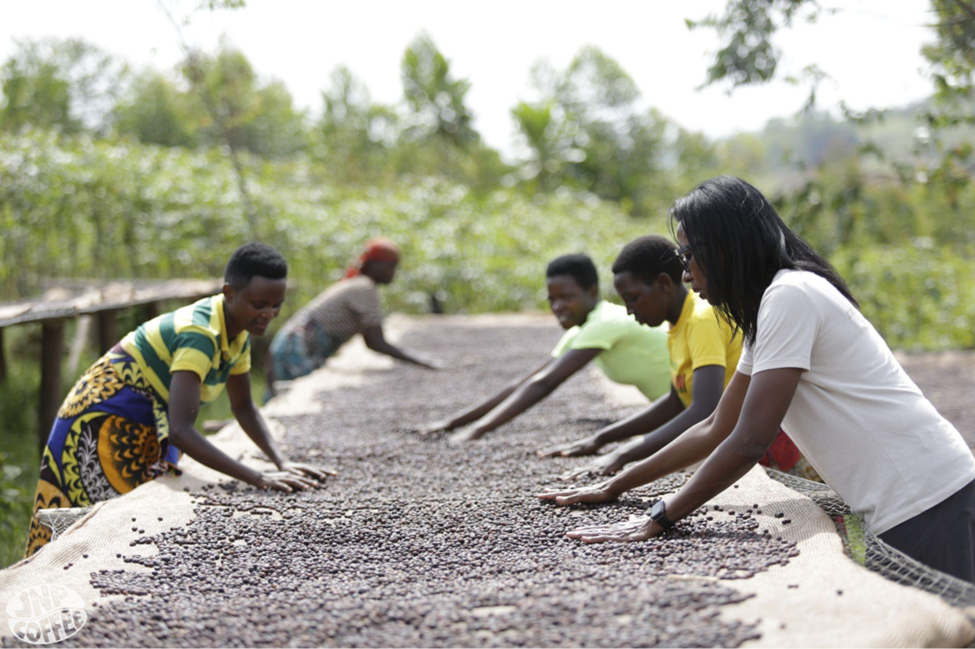
U.S. Ambassador Lisa Peterson USAID representatives in Burundi visited JNP Coffee’s lab, which will be expanded into the Coffee Academy of Burundi. Photo courtesy of JNP Coffee.
Green coffee trading company JNP Coffee is leading the creation of a coffee academy and separate dry mill in Burundi. The academy is being designed to train to women and young people in coffee skills, while the dry mill will be focused on microlot production and exports to the United States market.
The 23-month project is being supported by the United States Agency for International Development (USAID), and jointly led by Massachusetts-based importing company JNP Coffee and its Burundi sibling company, JNP Coffee Burundi. According to a JNP spokesperson, the USAID partnership involves joint commitments totaling $1.5 million.
“While both sides have a steep learning curve on how to co-create these projects together, we are grateful to have the strength and support of USAID behind these projects,” JNP Founder and CEO Jeanine Niyonzima-Aroian said in an announcement from the company on Tuesday. “Our success will also mean greater progress for the people of Burundi, which serves the core mission of JNP Coffee.”
The project is expected to create 600 jobs over the next two years, while increasing coffee exports to the U.S. by $400,000 in 2026, JNP said in an announcement of the partnership this week.
In addition to the the new microlot dry mill, the joint effort will establish the Coffee Academy of Burundi, which will be located within JNP’s expanded cupping lab in Bujumbura. USAID and/or JNP funding will contribute to personnel, equipment purchases and kickstarting the Coffee Academy training, among other costs.
More than 100 women and young people are expected to receive training through the academy, following Specialty Coffee Association (SCA) materials and practices, to become qualified baristas, cuppers (tasters), processors, roasters and coffee marketers.
The United States remains a key importer of Burundian coffee, following Germany and Sweden. A separate $16.7 million project called the Burundi Better Coffee Initiative is already underway, with funding from the United States Department of Agriculture and implementation from TechnoServe.
[Editor’s note: This story has been updated. An earlier version incorrectly associated the purchase of land with USAID funding.]
Comments? Questions? News to share? Contact DCN’s editors here.







Comment